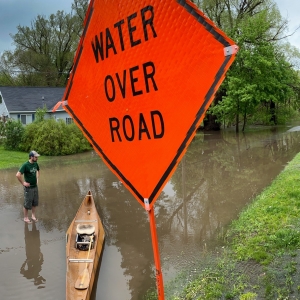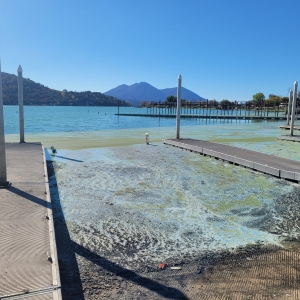The Stream, September 21, 2021: National Pledges to Cut Carbon Emissions Are Too Timid, UN Says
YOUR GLOBAL RUNDOWN
- UN report reveals national carbon-reduction pledges are inadequate to prevent catastrophic warming.
- Minnesota regulators fine Enbridge $3.3 million for environmental violations while building the Line 3 oil pipeline.
- Climate change slows global farm productivity.
- A month after a toxic waste spill from an Angola diamond mine poisoned rivers in the Democratic Republic of Congo, many questions remained unanswered.
Illegal marijuana farms in the American West are diverting water and stressing rivers already under strain from drought.
“It’s just blatant theft of water.” — Dave Daniel, sheriff of Josephine County, Oregon. Authorities in California and Oregon have heard an increasing number of complaints about unlicensed marijuana farms illegally taking water from streams and aquifers. A month ago, Daniel and his staff destroyed 72,000 marijuana plants growing in 400 makeshift greenhouses, the Associated Press reports.
IN RECENT WATER NEWS
The Town That Flood-Proofed Itself
That buyout program marked the beginning of a decades-long flood management strategy in Ottawa. It steered development out of the riskiest areas. It bought out 50 flood-prone properties and moved homeowners out of the flood plain. Ottawa tightened the safety requirements for buildings located in flood zones. And, unlike many places, it strictly enforces FEMA’s “50% rule,” mandating that buildings become compliant with local floodplain building codes when they accumulate damage worth half its original value.
Those steps worked. Last year, the second-highest flood on record caused virtually no property damage citywide—a stark contrast to the devastation floods used to wreak.
But behind the town’s successes lie personal sacrifice.
Unanswered Questions in Toxic Spill from Angola Diamond Mine
After a diamond mine in Angola, one of the largest such mines on the planet, spilled toxic wastewater in early August, the environmental fallout downstream was swift. The Kasai River in the Democratic Republic of Congo turned red. There were local reports of dead fish and hippos. Thousands of people who use the river as a drinking water source fell ill with diarrhea and at least a dozen died. Six weeks later, there is little information about the spill, Mongabay reports. The mining company claims the spill was not toxic, while the Angolan government says it is still investigating the matter.
TODAY’S TOP WATER STORIES, TOLD IN NUMBERS
21 PERCENT
Unstable temperatures and erratic rainfall brought about by heat-trapping gases in the atmosphere have decreased global farm production by 21 percent since 1961, a new study found. SciDevNet reports that the study used computer models to compare farm output under current conditions with that of a world in which man-made warming trends did not occur. The biggest effects were seen in Africa, Latin America, and the Caribbean. The study was published in the journal Nature Climate Change.
$3.3 MILLION
Minnesota regulators fined the Canadian company Enbridge $3.3 million for environmental violations during construction of the Line 3 oil pipeline, Reuters reports. The company pierced an artesian aquifer, resulting in an unauthorized groundwater flow. Despite protests and legal challenges, construction continues on the pipeline, which Enbridge expects to put into service in October.
In context: Amid Extreme Heat and Drought, Line 3 Pipeline Construction Puts Water at Risk
ON THE RADAR
Six weeks before world leaders and diplomats meet in Glasgow for pivotal global climate talks, the UN secretary-general warned that emissions-reduction pledges are not enough to avoid catastrophic warming. A UN report published on Friday assessed national climate pledges. It found that the pledges put the world on a path toward 2.7 degrees C of warming by the end of the century. “This report shows just how far off course we are,” said UN secretary-general António Guterres.
In context: Water Advocates View Upcoming UN Climate Conference as Moment of Relevance
Brett writes about agriculture, energy, infrastructure, and the politics and economics of water in the United States. He also writes the Federal Water Tap, Circle of Blue’s weekly digest of U.S. government water news. He is the winner of two Society of Environmental Journalists reporting awards, one of the top honors in American environmental journalism: first place for explanatory reporting for a series on septic system pollution in the United States(2016) and third place for beat reporting in a small market (2014). He received the Sierra Club’s Distinguished Service Award in 2018. Brett lives in Seattle, where he hikes the mountains and bakes pies. Contact Brett Walton







Leave a Reply
Want to join the discussion?Feel free to contribute!